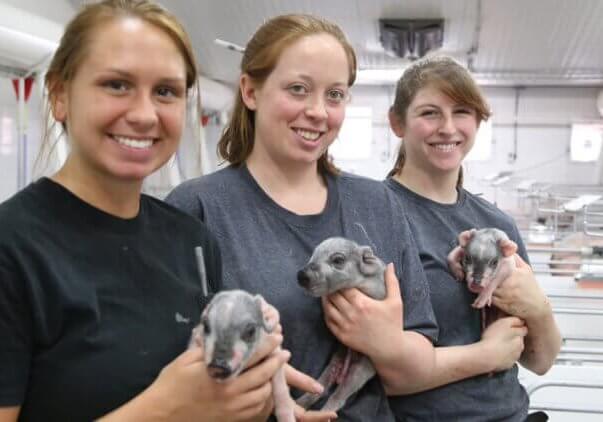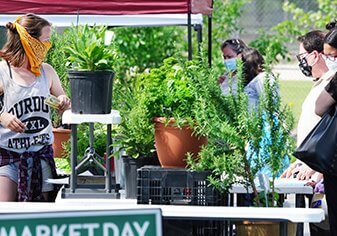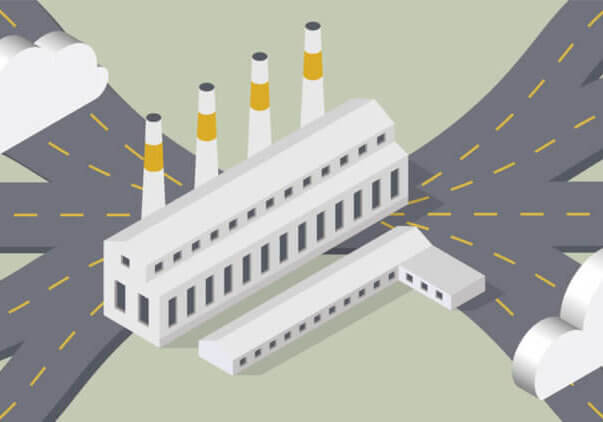
COVID-19 guarantees that the Summer of 2020 will be like none we have experienced. We will be exploring what that means in Indiana by telling the stories of Purdue Agriculture’s and Purdue Extension’s interactions with communities throughout the state. We invite you to follow our series on this Season of Change.
A
ngie Frost had been hearing from youth and adults that they needed more mental health resources. So the Healthy Living Extension Specialist for Indiana 4-H Youth Development trained a group of Teens as Teachers early this year to lead other youth in practicing social and emotional wellness. “We focused on that in February, without at all knowing what we’d be going through a month later.”
By March, families across Indiana experienced unprecedented levels of change in their daily routines as COVID-19 brought the globe to a standstill.
“I’ve seen a big spike in collective anxiety since COVID-19 began,” said Tessa Garrow, licensed mental health therapist and Health and Human Sciences (HHS) Extension project manager at Purdue. As families work to navigate sudden changes in food access, childcare or employment, it’s important to acknowledge how difficult change can be, she said.
Adapting to change is especially difficult when families can’t tap into their support networks. “Social distancing and other necessary pandemic requirements have been taxing for the population’s mental health as a whole,” Garrow said. “Part of where we get our validation and support, where we turn to process and understand things, is our communities. We haven’t been able to connect with our communities in the same way, and that’s tough.”

When efforts to adapt and stay connected leave us feeling drained, it’s important to show ourselves compassion. “Trying to find different ways to do things takes thinking outside of the box, which means it can take a lot of our energy,” said Garrow. “It’s not just okay to take time for ourselves, it’s important.”
To cope with anxiety during COVID-19, she recommends resources from Mental Health America, the National Alliance on Mental Illness, and the Centers for Disease Control.
Helping ourselves is especially important if we are caregivers who nurture others. “We can set our mindset to deal with anything that’s a big change for a short period of time,” Barb Beaulieu, Human Development Specialist in HHS Extension said. It soon became clear, however, that the changes to our lives caused by COVID-19 would last more than a few weeks.
That sense of upheaval was intensified following the death of George Floyd at the hands of Minneapolis police, leading to mass demonstrations around the country. Communities experienced protests, violence and turmoil as parents tried to provide children with information about our nation’s history of racism, adding to the anxiety they might already be feeling.
To help families develop resilience in a time of abundant change, Beaulieu joined a team at Purdue to establish the public Facebook group Families Tackling Tough Times Together, led by faculty and staff in the College of Health and Human Sciences, HHS Extension, the Military Family Research Institute, the Center for Families, and the Ben and Maxine Miller Child Development Laboratory School. The team also includes colleagues from the College of Education, Purdue Polytechnic Institute, and Purdue Extension Farm Stress Team.

The group, with over 1,300 members from 25 countries, features a strength-based program informed by scientific evidence about family resilience, with new information and activities posted each week, including information on returning to work or school during COVID-19 and mental health resources for diverse communities.
Beaulieu also encourages families to practice mindfulness or yoga together, and with more people in the house than usual, reminds parents to recharge their patience. She suggests the resources at childmind.org to support families juggling work and childcare.
“It helps children to have structure, so creating new routines, especially for the summer when there are now fewer activities for them to do, is important,” Beaulieu stressed.
Extension Specialist Frost agreed. In a 4-H youth mental health survey conducted in May by the National 4-H Council, 81 percent of teens say mental health is a significant issue for young people in the U.S. “It’s clear that youth are really struggling with all that’s going on and the isolation from their friends,” Frost said.
Indiana 4-H has shared resources for healthy living at home. Getting outside is particularly essential for mental health. “We can’t discount what just being out in nature does for us, whether it’s going for a hike or going for a bicycle ride,” said Frost.
With many activities canceled or modified this summer, boredom is a big family challenge. Indiana 4-H developed a list of at-home activities for kids in multiple areas — ranging from animal to computer sciences and from civic engagement to STEM fields (science, technology, engineering and math).
Purdue experts agreed that in a summer filled with change, one of the most important skills we can develop is adaptability. Families can thrive if they practice resilience in the face of challenges.
Agritourism offers safe summer fun during COVID-19
By day, Marshall Martin is a professor of agricultural economics, the senior associate director of agricultural research and graduate education and assistant dean in the College of Agriculture. In the evenings, he’s known to many customers as just the “blueberry man.”
While much at Martin Acres LLC, the West Lafayette farm he manages with his wife, Berdine, remains the same this year, they are taking precautions due to COVID-19. Martin is basing these necessary safety adjustments on guidelines for U-pick operations published by Purdue Extension.
Read Full Story >>>How Hoosier farmers markets are coping with COVID-19
Farmers markets in Indiana are organized at the local level, subject to county health authorities and regulations. Under normal circumstances, these rules don’t differ much from town to town, Tamara Benjamin, assistant program leader for diversified farming and food systems for Purdue Extension, said.
In the era of COVID-19, however, the regulations dictating safety standards to vendors and visitors can vary drastically.
Read Full Story >>>The Road from Farm to Table
The following questions and answers provide background and insight into how COVID-19 is impacting the food supply chain and animal welfare. The information is provided by Jayson Lusk, distinguished professor and head of the Department of Agricultural Economics, Purdue University, and Candace Croney, professor of animal behavior and well-being, and director of the Center for Animal Welfare Science, Purdue University.
Read Full Story >>>Agritourism offers safe summer fun during COVID-19
By day, Marshall Martin is a professor of agricultural economics, the senior associate director of agricultural research and graduate education and assistant dean in the College of Agriculture. In the evenings, he’s known to many customers as just the “blueberry man.”
While much at Martin Acres LLC, the West Lafayette farm he manages with his wife, Berdine, remains the same this year, they are taking precautions due to COVID-19. Martin is basing these necessary safety adjustments on guidelines for U-pick operations published by Purdue Extension.
Read Full Story >>>How Hoosier farmers markets are coping with COVID-19
Farmers markets in Indiana are organized at the local level, subject to county health authorities and regulations. Under normal circumstances, these rules don’t differ much from town to town, Tamara Benjamin, assistant program leader for diversified farming and food systems for Purdue Extension, said.
In the era of COVID-19, however, the regulations dictating safety standards to vendors and visitors can vary drastically.
Read Full Story >>>The Road from Farm to Table
The following questions and answers provide background and insight into how COVID-19 is impacting the food supply chain and animal welfare. The information is provided by Jayson Lusk, distinguished professor and head of the Department of Agricultural Economics, Purdue University, and Candace Croney, professor of animal behavior and well-being, and director of the Center for Animal Welfare Science, Purdue University.
Read Full Story >>>

